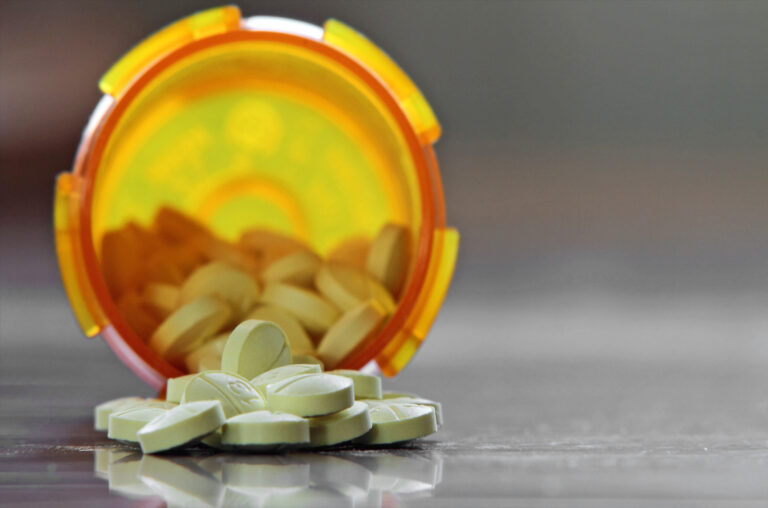Fentanyl is highly addictive – and it’s very deadly. During the pandemic, deaths from drug overdoses hit record highs, with the opiate being one of the leading causes of death.
Fentanyl withdrawal symptoms hit hard and fast, and kicking a fentanyl problem might be one of the hardest things you do.
Keep reading to learn how to give yourself a fighting chance.
Fentanyl Withdrawal Symptoms Explained
In simple terms, people go into withdrawal when they suddenly stop using a substance like alcohol, recreational drugs, and prescription medication. It’s a combination of physical and mental effects that cause changes in appetite, physical distress, mood swings, and nausea.
Withdrawal is more likely to occur following a sudden drop in the intake of a substance. The longer the substance is consumed – and the higher a person’s tolerance to it – the worse the symptoms of withdrawal become.
Fentanyl withdrawal symptoms can be classified into three distinct “stages”.
Early-Stage Withdrawal
Early-stage withdrawal happens soon after coming down from a fentanyl high, occurring around two to four hours after taking the drug.
During early-stage withdrawal, a fentanyl user will experience cravings and restlessness. Hot and cold chills are common.
Peak-Stage Withdrawal
A couple of days after taking fentanyl is when the “peak” stage occurs. This phase is the hardest for most users to overcome.
Irritability and difficulty sleeping accompany a more intense desire to use the drug again. It’s very frequent for fentanyl users to relapse during peak-stage withdrawal, and the intensified cravings can make sleep nearly impossible.
During this critical phase, medical assistance is most needed and most valuable.
Late-Stage Withdrawal
Around one week after the last dose of fentanyl and once out of the peak stage, most physical symptoms of withdrawal will subside. But the cravings do not disappear as quickly.
The intensity of living without the drug for a week or longer has substantial negative effects on mental health, resulting in anxiety, depression, and unpredictable mood swings.
Perhaps paradoxically, the late stage is also where “pink cloud” syndrome can occur, causing strong feelings of euphoria at having “beaten” the drug. Sometimes called the “Honeymoon” phase, the pink cloud leads many recovering drug users to let their guard down and relapse or quit recovery programs entirely.
How to Detox From Fentanyl
Detoxing from opiates is a long and enduring process, but it’s not impossible to overcome. It may seem that way at first – which is why preparation is key.
Prepare for a Hard Battle
It won’t be easy to detox from fentanyl, and if you’re trying to stop using the drug, there’s a good chance it isn’t your first attempt by a long shot. Getting clean is difficult and you’ve got a hard battle ahead.
Preparing your mind and body for the detox process in advance gives you a fighting chance of coming out on top.
- Drink plenty of fluids
- Procure over-the-counter drugs to combat withdrawal symptoms
- Prepare a lot of things to do to keep your mind occupied
Ibuprofen will alleviate muscle aches, while Dramamine is an anti-nausea drug that will help relieve the worst of your sickness.
Keep Your Family Informed
Opening up to loved ones or close friends about your fentanyl problems is almost as hard as kicking the habit itself.
However, keeping your loved ones in the loop means you’ll have somebody to depend on while you’re getting clean. If possible, ask one person you trust to check in on you at least once per day.
Speak With Your Doctor
A frank consultation with your doctor about your desire to get clean is important. Your doctor knows your medical history and will be able to give unique advice that’s relevant to you and your situation.
They’ll also inform you of any additional risks that you should be aware of.
Find Emotional Support Groups
Many fentanyl users don’t seek emotional support groups until after late-stage withdrawal or several failed attempts to kick the drug.
But emotional support groups of like-minded drug users can relate to you in ways that your family and friends can’t. They won’t judge, as they have all been in your situation before. In fact, they will be able to offer unique, real-world advice on how to get clean for good.
Seek Professional Care
The big “R” is a word you might want to avoid thinking about entirely. But rehabilitation works.
As a residential inpatient, you’re helped by a team of professional addiction specialists and you can detox from fentanyl in a controlled, emotionally supportive setting. Most rehabilitation programs are paired with a long-term aftercare program to help you stay clean once you have endured the trials and challenges of the detox process.
How to Help a Loved One Detox
Detoxing fentanyl is a deeply personal journey that tests a drug user’s willpower in ways that few of us can ever understand.
The number one rule of helping a loved one detox is to provide as much emotional support as you can without bias. That’s easier said than done – the mental anguish caused by withdrawal can make detoxing drug users unpleasant to be around, emotionally manipulative, and unpredictable.
But it’s vital that you remember it’s the drug talking.
Understand the Timeline
Read the above section on the three stages of withdrawal carefully and do your best to recognize the signs of each in your loved one.
Every detox is different, but having a broad understanding of what’s in store will help you prepare.
Understand Addiction
Addiction is a disease and it effectively rewires the brain’s reward system. The reason is simple – our pleasure centers aren’t designed to handle the easy and instantaneous flood of dopamine that drugs can provide, but they are designed to repeat behaviors that release the “happy” chemical.
In other words, addiction occurs because our brains seek pleasure and drugs provide the path of least resistance. When talking about addiction, it helps to define what addiction is not:
- Addiction is not a personal failing
- Addiction is not a lack of willpower
- Addiction is not your fault
- Addiction is not a permanent change in behavior
Addiction is a treatable disease like any other. Accepting that it’s an unfortunate set of circumstances (and leaving judgment at the doorstop) will go a long way in helping your loved one in their battle to stop taking drugs for good.
Detox From Fentanyl the Right Way
Fentanyl withdrawal symptoms are a hard challenge to deal with and the road to recovery is a rocky one, full of pitfalls and traps. Getting clean requires adequate planning.
Staying clean requires a strong emotional support network.
If you are struggling with opiate use and need professional help, we cooperate with most insurance providers and handle every case with discretion and without judgment. Click here to book a free consultation.




